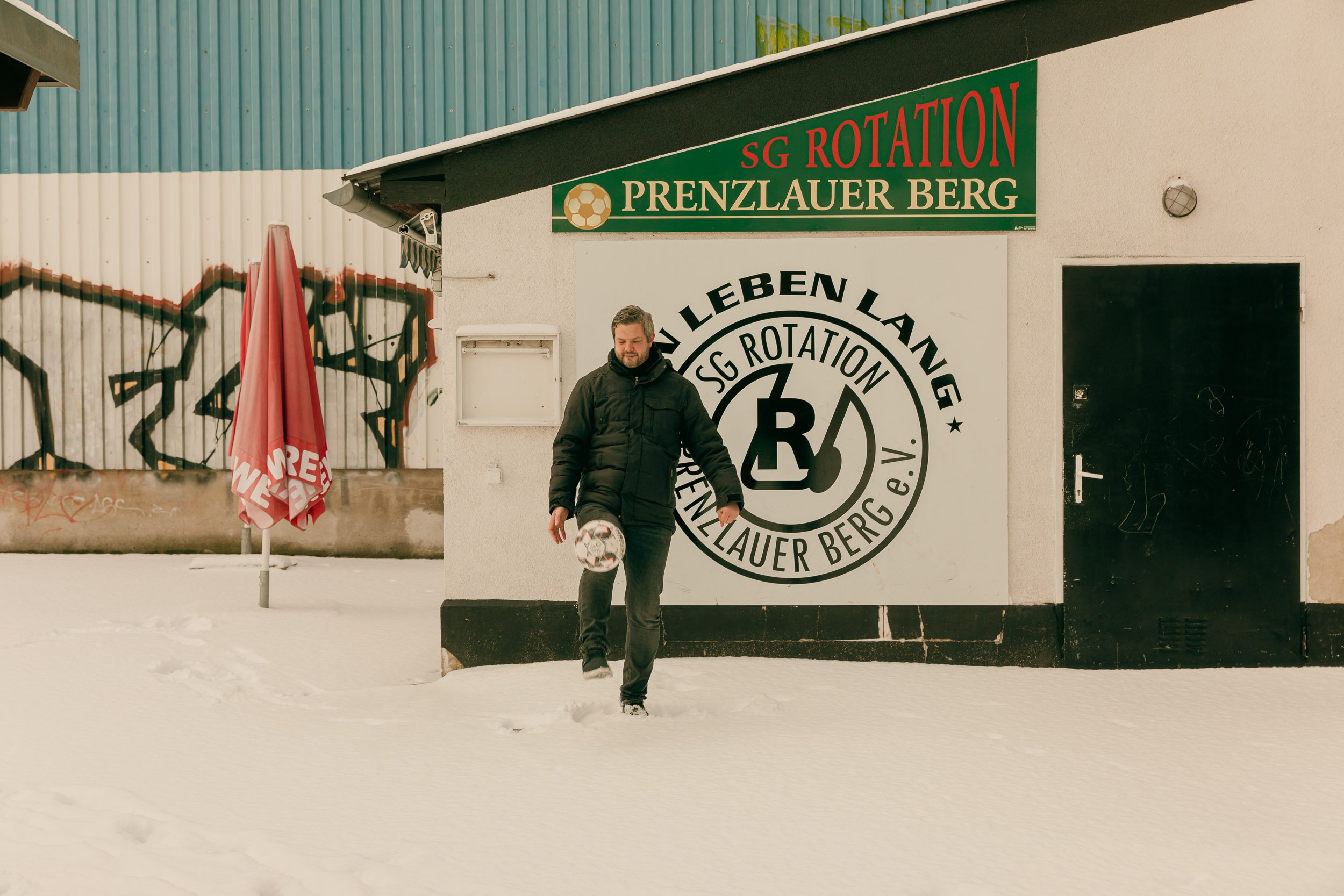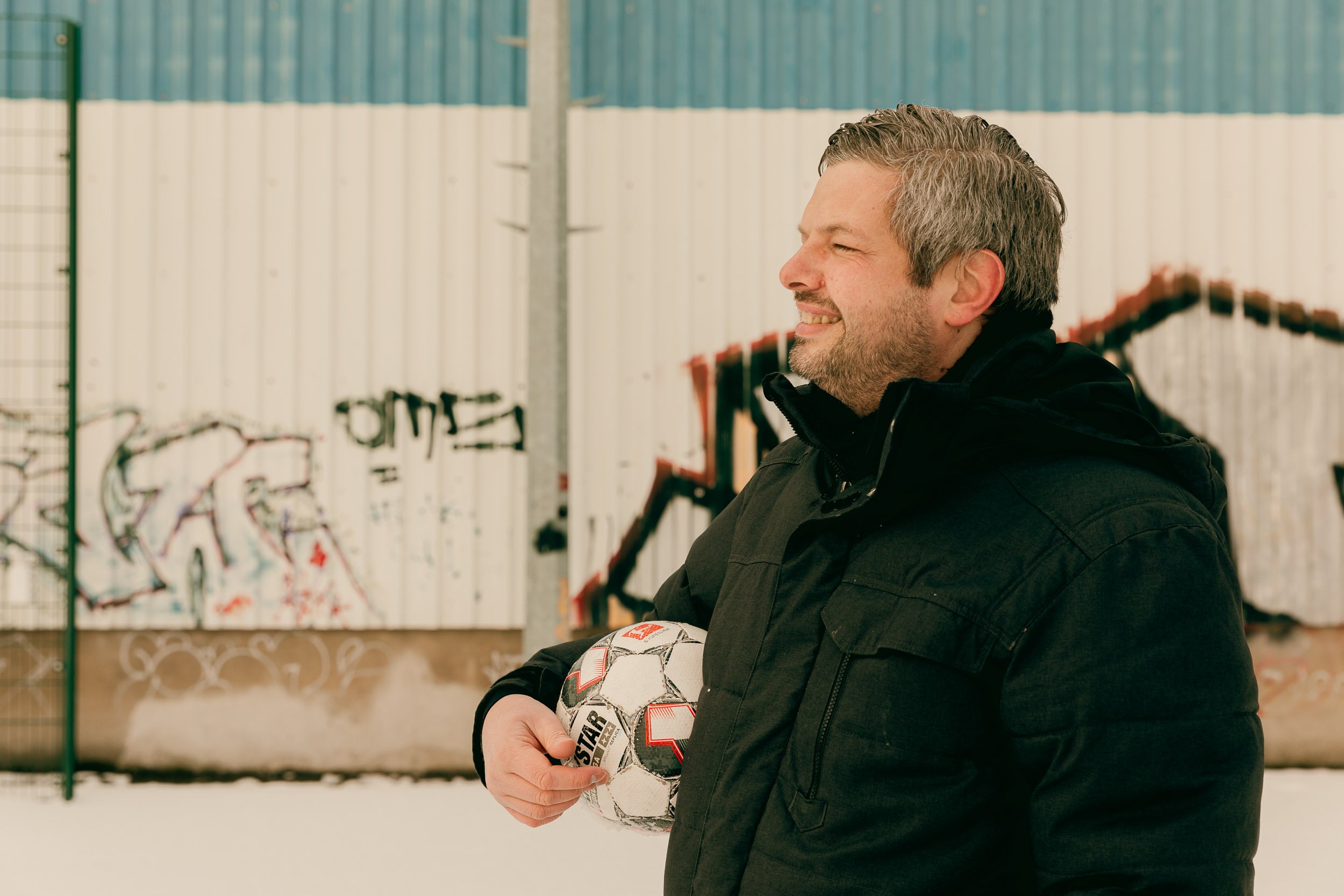During lockdown, the football club SG Rotation in Prenzlauer Berg started experimenting with digital formats for team sport.
When in March 2020 the first wave of the pandemic leads to a nation-wide lockdown, the football club SG Rotation is facing completely new challenges. Before the pandemic, around 500 members regularly trained on the playing field Tesch in Prenzlauer Berg. The lively community in the club kept together through training camps, Christmas parties and the team spirit on the field – mainly activities which do not take place in a virtual space. Now, they are no longer allowed to train on the field, especially not as a team.
“In the beginning, the biggest challenge was to keep everyone engaged and to evoke a thought of solidarity among members.”, states the head of department Andreas Gräber. Because what is team sport without a team? How can a community survive without a location where people meet regularly?
“From a communication perspective, the biggest hurdle was to keep everyone motivated and active, especially children and young people.”,
adds youth leader Michael Trenk. In his role as communication manager, he quickly starts experimenting with digital solutions instead of being paralysed with shock. His friend has his own YouTube channel and shares some tips and tricks. Soon, the SG Rotation Prenzlauer Berg creates its first YouTube videos to train members from home.
The members‘ feedback is positive and Michael Trenk and his team continue. They create challenges for kids and young people with workouts which can be carried out even with limited space. A good source of inspiration are digital formats used in schools. Especially parents are pleased that their children stay active and engaged in the club during these difficult times. Currently, the club is trying live trainings which allow members to train together via a video platform – this should strengthen the team spirit.
 Image: Daniel Lucas Faró
Image: Daniel Lucas Faró
Andreas Gräber is still concerned:
“We have learned during this year that sport is not everything. We need to create a position for someone who knows how to handle digital issues such as social media and e-learning – that’s crucial.”
Taking responsibility for this field is a clear goal defined by the board, as currently digitalisation is mainly brought forward by individual persons.
Michael Trenk is meanwhile working on the next solution: A SG-Rotation app which allows members to communicate and stay up to date with the club’s news. It is particularly interesting that Michael Trenk is learning by doing: He experiments with digital formats, asks for feedback and then decides what works and what doesn’t. The app should soon be available in its beta-version on app stores. One of the biggest challenges Michael Trenk faces is the internet connection: “Especially during the second lockdown, the Wi-Fi connection is interrupted and sometimes the internet even fails completely. The club can’t do anything about it.”.
Despite digital alternatives, personal contact is still missing. “I’d say you just miss other people.”, reaffirms Andreas Gräber. The team of SG Rotation still has a positive outlook on the future: Hopefully the first matches can take place around Easter and members can train with their teams again. Despite the digital developments of SG Rotation, it became clear that the virtual world cannot replace the team sport on the field.
 Image: Daniel Lucas Faró
Image: Daniel Lucas Faró